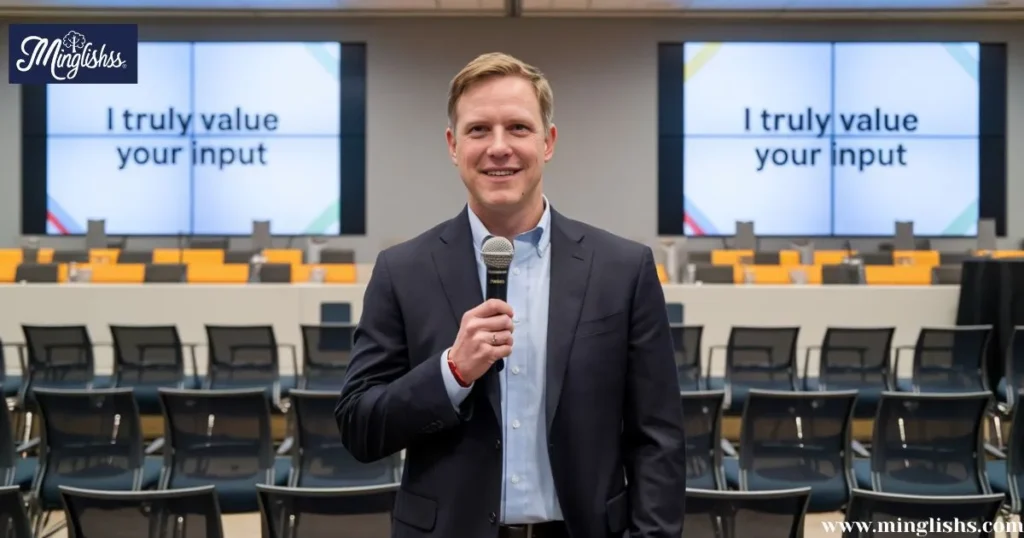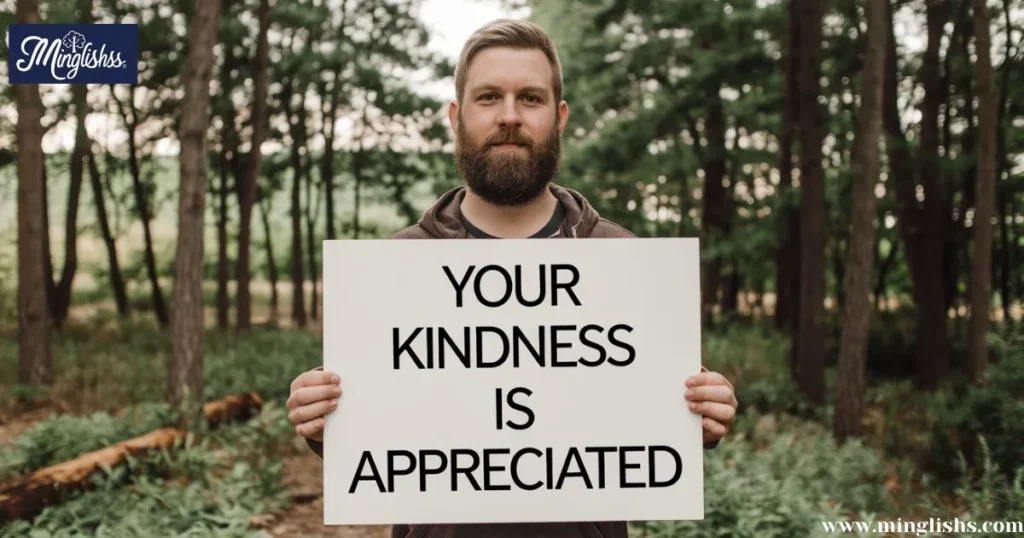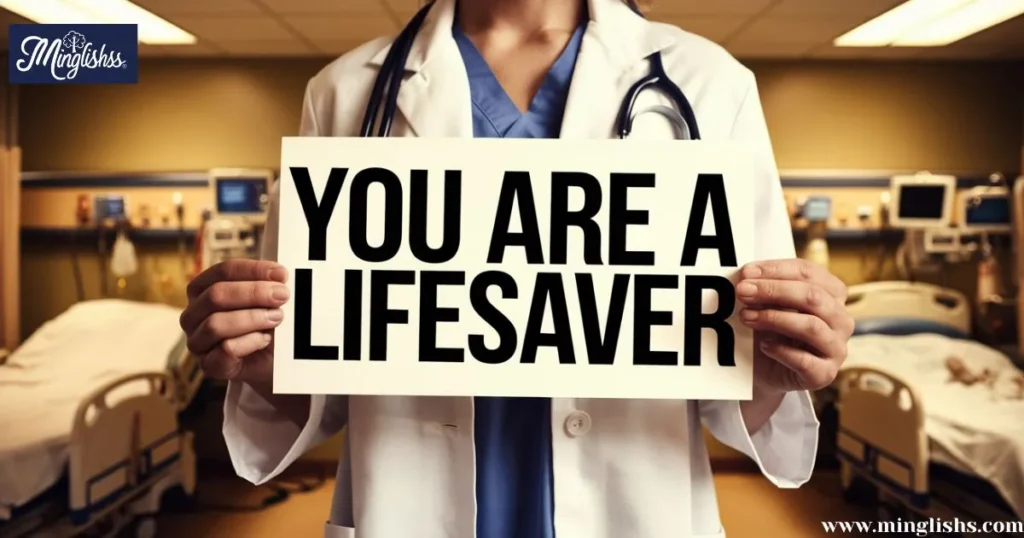“Thank you for your efforts! There are countless ways to express gratitude that go beyond the traditional ‘thank you.'”
In our daily lives, expressing gratitude is a fundamental part of building and maintaining relationships. Whether it’s in personal or professional settings, saying “thank you” acknowledges the effort someone has made on our behalf. However, sometimes, a simple “thank you” may not fully convey our appreciation. This is where exploring alternative phrases can enrich our communication and make our gratitude feel more genuine.
Encouraging people to acknowledge the efforts of others is a powerful message that can transform interactions. By diversifying the ways we express gratitude, we not only enhance our relationships but also inspire others to feel valued and motivated. It’s important to create a culture where appreciation flows freely, and different expressions of thanks can help us achieve that.
This blog will delve into 35 alternative phrases and scenarios for expressing appreciation beyond the conventional “thank you.” Each suggestion will be followed by practical insights and tips to help you integrate these expressions into your daily conversations, enhancing your interpersonal skills and deepening connections.
Alternative Ways to Say Thank You for Trying
1. “I Appreciate Your Efforts”
Scenario: When a colleague puts in extra hours to complete a project.
Subject Explanation: When Sarah stayed late to finish the marketing presentation, her dedication didn’t go unnoticed. Acknowledging her hard work with “I appreciate your efforts” not only boosts her morale but also reinforces teamwork. This phrase shows that you recognize the extra mile she went to achieve a common goal.
Additional Tip: Always be specific when expressing appreciation. Mentioning what they did, like staying late, highlights the value of their contribution.
2. “Your Help Means a Lot to Me”
Scenario: When a friend assists you during a difficult time.
Subject Explanation: John helped Maria move to her new apartment during a challenging week. Saying, “Your help means a lot to me” shows that you value not just the act of assistance but the friendship behind it. It strengthens your bond and lets him know he can count on you in return.
Additional Tip: Sharing how their help impacted you emotionally can deepen your gratitude. Personal stories resonate more than generic praise.
3. “I’m Grateful for Your Support”

Scenario: When a mentor guides you through a career decision.
Subject Explanation: Lisa was uncertain about her job prospects until her mentor, Mike, offered insightful advice. Expressing, “I’m grateful for your support” acknowledges his role in her journey. It builds a strong mentor-mentee relationship and encourages future guidance.
Additional Tip: Expressing gratitude to mentors can lead to a lifelong relationship, as they often appreciate hearing how their advice has helped you.
4. “You’ve Made a Difference”
Scenario: After a volunteer assists at a community event.
Subject Explanation: At the local food drive, Jake worked tirelessly to sort donations. Telling him, “You’ve made a difference” highlights the impact of his actions, motivating him to continue contributing. This phrase resonates deeply, reinforcing the value of his efforts.
Additional Tip: Highlighting specific outcomes from their actions can make your appreciation feel more substantial.
5. “Your Efforts Don’t Go Unnoticed”
Scenario: When an employee consistently meets deadlines.
Subject Explanation: Emma’s consistent performance in her sales role deserves recognition. By saying, “Your efforts don’t go unnoticed,” you validate her hard work and encourage her to maintain her high standards. It fosters a positive work environment where employees feel valued.
Additional Tip: Regularly recognizing efforts helps build a culture of appreciation in the workplace, improving morale and productivity.
6. “Thank You for Going the Extra Mile”
Scenario: When a team member takes initiative on a project.
Subject Explanation: Alex took the lead on a group project, ensuring everything was completed ahead of schedule. Acknowledging this with “Thank you for going the extra mile” emphasizes the value of initiative and encourages others to do the same.
Additional Tip: Use this phrase in team meetings to publicly acknowledge contributions, enhancing team cohesion.
7. “I Truly Value Your Input”

Scenario: After receiving constructive feedback on a presentation.
Subject Explanation: During a team meeting, Rachel provided valuable feedback on Tom’s presentation. Thanking her with “I truly value your input” fosters an open environment for constructive criticism and encourages collaboration.
Additional Tip: Make sure to incorporate their feedback in future work, showing that their input genuinely influences outcomes.
8. “You’ve Helped Me a Lot”
Scenario: When a colleague assists you in completing a challenging task.
Subject Explanation: When David stepped in to help Sofia with a complex report, acknowledging his assistance with “You’ve helped me a lot” emphasizes the teamwork involved. It reinforces the idea that collaboration leads to success.
Additional Tip: Be specific about how their help made a difference, as this personal touch enhances your appreciation.
9. “Thanks for Your Time and Effort”
Scenario: After a friend listens to you vent about a problem.
Subject Explanation: When Kevin lent an ear while Jenna shared her frustrations, expressing, “Thanks for your time and effort” conveys gratitude for both listening and supporting her emotionally. It strengthens their friendship and encourages openness in future conversations.
Additional Tip: Encouraging friends to share their experiences in return can create a safe space for mutual support.
10. “I Couldn’t Have Done It Without You”
Scenario: When collaborating on a group project.
Subject Explanation: During a team project, Samantha contributed significantly to the research phase. By saying, “I couldn’t have done it without you,” you acknowledge her crucial role and emphasize the importance of teamwork. It encourages a collaborative spirit among peers.
Additional Tip: Follow up with how her contributions helped achieve the final result to solidify the impact of her efforts.
11. “Your Kindness is Appreciated”

Scenario: When someone assists you unexpectedly.
Subject Explanation: When Mark offered his help to Karen during a stressful week, telling him, “Your kindness is appreciated” acknowledges his generosity. It highlights the significance of support during tough times and fosters goodwill.
Additional Tip: Encourage others to pass on kindness, creating a ripple effect of generosity.
12. “Thanks for Being There for Me”
Scenario: After a friend supports you through a tough decision.
Subject Explanation: After helping her navigate a tough choice, saying “Thanks for being there for me” emphasizes the emotional support provided. It reinforces the bond between friends and encourages continued support.
Additional Tip: Remind your friends that their presence makes a difference, creating a deeper sense of community.
13. “Your Contribution is Valued”
Scenario: After a volunteer event.
Subject Explanation: At a charity event, Julia worked tirelessly to organize everything. By saying, “Your contribution is valued,” you affirm her role in making the event successful. It encourages future involvement and helps her feel part of a larger mission.
Additional Tip: Recognizing volunteers regularly can lead to higher retention and engagement in community activities.
14. “You Made a Great Impact”
Scenario: When a leader inspires change in the workplace.
Subject Explanation: When Robert implemented new processes that improved efficiency, expressing, “You made a great impact” acknowledges his influence on the team. It encourages innovation and empowers others to think creatively.
Additional Tip: Encouraging employees to share their ideas can lead to a more engaged and proactive workforce.
15. “Thanks for Your Enthusiasm”
Scenario: After a colleague energizes a meeting.
Subject Explanation: When Clara brought excitement to a dull meeting, acknowledging her with “Thanks for your enthusiasm” reinforces the positive atmosphere she created. It encourages others to contribute positively in group settings.
Additional Tip: Highlighting enthusiasm can spark creativity and energy in future meetings, leading to better collaboration.
16. “Your Support is Invaluable”
Scenario: When a family member assists with life decisions.
Subject Explanation: When Alex helped his sister navigate her career choices, telling her, “Your support is invaluable” affirms her role in his life. It strengthens family bonds and encourages open communication about personal matters.
Additional Tip: Regularly checking in on family can deepen connections and create a support network.
17. “Your Feedback is Crucial”
Scenario: When seeking opinions on a project.
Subject Explanation: During a design review, Mike valued Hannah’s feedback. Saying “Your feedback is crucial” emphasizes the importance of diverse perspectives and encourages a collaborative environment.
Additional Tip: Create an open dialogue for feedback where everyone feels comfortable sharing their thoughts.
18. “I Appreciate Your Positivity”
Scenario: After a colleague maintains morale during stressful times.
Subject Explanation: When Kevin remained optimistic during a challenging project, saying “I appreciate your positivity” reinforces the value of a positive attitude in tough situations. It encourages others to maintain morale as well.
Additional Tip: Recognizing positivity can lead to a more resilient team that thrives under pressure.
19. “Thanks for the Inspiration”
Scenario: After a friend shares a motivating story.
Subject Explanation: When Lisa shared her story of overcoming challenges, thanking her with “Thanks for the inspiration” acknowledges the impact her story had on your perspective. It reinforces the power of sharing experiences.
Additional Tip: Encourage others to share their stories to inspire collective growth and learning.
20. “Your Help Made a Difference”
Scenario: When someone assists with a personal project.
Subject Explanation: After Emily helped Chris with his art project, expressing “Your help made a difference” acknowledges the specific ways she contributed. It emphasizes collaboration and shows that teamwork is valued.
Additional Tip: Always be ready to reciprocate and support others in their projects as well.
21. “I’m Thankful for Your Guidance”
Scenario: After receiving advice on a personal issue.
Subject Explanation: When John provided advice during a tough time, saying “I’m thankful for your guidance” emphasizes the importance of mentorship and support. It encourages open communication about personal struggles.
Additional Tip: Make it a habit to reach out to mentors and express gratitude regularly.
22. “Your Dedication is Noted”
Scenario: When a team member shows commitment to a task.
Subject Explanation: After Anna consistently met her deadlines, saying “Your dedication is noted” recognizes her commitment and encourages her to keep it up. It fosters a culture of accountability.
Additional Tip: Regularly acknowledging dedication can inspire others to elevate their commitment levels as well.
23. “Thanks for Your Hard Work”
Scenario: After a project completion.
Subject Explanation: When a team successfully completes a project, saying “Thanks for your hard work” recognizes the collective effort. It strengthens team dynamics and encourages future collaboration.
Additional Tip: Celebrate team successes together to reinforce the importance of teamwork.
24. “I’m Grateful for Our Collaboration”
Scenario: When working on a group project.
Subject Explanation: After completing a project with Lisa and Mike, saying “I’m grateful for our collaboration” emphasizes the importance of working together. It encourages more teamwork and reinforces the idea that collective efforts lead to success.
Additional Tip: Encourage team members to share their strengths for better collaboration in the future.
25. “Your Trust Means a Lot”
Scenario: When a friend confides in you.
Subject Explanation: After James shared personal details, saying “Your trust means a lot” acknowledges the vulnerability involved in sharing. It strengthens the friendship and encourages open dialogue.
Additional Tip: Always reciprocate trust by being a reliable and supportive friend.
26. “You Are a Lifesaver”

Scenario: When someone assists you in a critical moment.
Subject Explanation: When Maria helped Ben with urgent paperwork, saying “You are a lifesaver” emphasizes the importance of her timely support. It shows gratitude for being there in a crunch.
Additional Tip: Expressing gratitude in high-pressure situations can enhance relationships during stressful times.
27. “Your Energy is Infectious”
Scenario: When a colleague uplifts team spirits.
Subject Explanation: During a long workday, Hannah’s positive energy lifted the team’s spirits. Acknowledging her with “Your energy is infectious” promotes a positive atmosphere and encourages others to contribute positively.
Additional Tip: Foster an environment where enthusiasm is celebrated to boost morale.
28. “Your Patience is Appreciated”
Scenario: When someone helps you learn a new skill.
Subject Explanation: While teaching Sam a new software, Daniel’s patience was remarkable. Saying “Your patience is appreciated” acknowledges his effort to help you learn without frustration.
Additional Tip: Emphasizing patience encourages others to be supportive teachers and mentors.
29. “I Appreciate You Taking the Time”
Scenario: After a colleague helps with a project review.
Subject Explanation: After Tanya reviewed Jake’s project, expressing “I appreciate you taking the time” shows gratitude for her commitment. It emphasizes that you value her insights and time.
Additional Tip: Encouraging open schedules for support can improve overall productivity.
30. “Thanks for Your Unwavering Support”
Scenario: When a friend stands by you during tough times.
Subject Explanation: After Amanda stood by Rachel through her struggles, saying “Thanks for your unwavering support” reinforces the importance of loyalty and friendship Thank. It strengthens the bond between them.
Additional Tip: Regular check-ins with friends can foster stronger relationships and support systems.
31. “You’re a True Friend”
Scenario: When a friend goes out of their way to help.
Subject Explanation: After Lisa drove Maria to the airport at an inconvenient hour Thank, acknowledging her with “You’re a true friend” solidifies their bond and appreciates the lengths friends go for each other.
Additional Tip: Small gestures of gratitude can greatly strengthen friendships over time.
32. “Your Insight is Always Valuable”
Scenario: After a brainstorming session.
Subject Explanation: When Chris contributed great ideas during a meeting, saying “Your insight is always valuable” emphasizes the importance of his contributions and encourages him to continue sharing.
Additional Tip: Encourage everyone to contribute during meetings to cultivate a diverse range of ideas.
33. “Thanks for Believing in Me”
Scenario: When someone supports your ambitions.
Subject Explanation: After her mentor supported her decision to pursue further studies, saying “Thanks for believing in me” acknowledges their faith in your potential. It strengthens the mentor-mentee relationship.
Additional Tip: Remind mentors regularly how their belief has influenced your journey.
34. “You’ve Got My Back”
Scenario: After a colleague covers for you.
Subject Explanation: When Mia covered for John during a family emergency, telling her, “You’ve got my back” emphasizes trust and reliability in their working relationship.
Additional Tip: Building trust among colleagues creates a supportive workplace environment.
35. “Your Friendship is a Gift”
Scenario: After a friend supports you during a tough time.
Subject Explanation: When Karen supported Hannah through a breakup, expressing “Your friendship is a gift” acknowledges the significance of their bond and the value of having supportive friends Thank.
Additional Tip: Celebrate friendships regularly by expressing gratitude, ensuring that they remain strong.
Pros and Cons of Diverse Expressions of Gratitude
Pros
- Strengthens Relationships: Diverse expressions of gratitude help deepen connections and enhance trust among individuals.
- Encourages Positive Behavior: Acknowledging efforts in various ways motivates individuals to continue contributing positively.
- Fosters a Culture of Appreciation: Regularly expressing gratitude creates an environment where everyone feels valued and recognized.
Cons
- Potential Misunderstandings: Using less common expressions might confuse recipients if they are not familiar with the phrases.
- Overuse of Certain Phrases: If not varied, even alternative phrases can become routine and lose their impact over time.
Answer to key question
1. Why is expressing gratitude important?
Expressing gratitude is crucial because it strengthens relationships, promotes positive behavior, and creates a culture of appreciation. It helps individuals feel valued and acknowledged, fostering emotional connections and trust.
2. How can I incorporate diverse expressions of gratitude in my daily life?
You can incorporate diverse expressions of gratitude by using different phrases in various contexts. Try writing thank-you notes, verbally acknowledging someone’s efforts, or sharing specific reasons for your appreciation. Being mindful and sincere in your expressions will enhance their impact.
3. Can expressing gratitude improve workplace morale?
Yes, expressing gratitude in the workplace can significantly improve morale. It helps create a supportive environment where employees feel recognized for their effortsThank, leading to increased motivation, collaboration, and job satisfaction.
4. What should I do if my expression of gratitude is not well received?
If your expression of gratitude is not well received, it’s essential to be understanding and open to feedback. Some people may feel uncomfortable with compliments or may not know how to respond. You can clarify your intentions and ensure your appreciation is genuine and heartfelt.
5. Are there cultural differences in expressing gratitude?
Yes, cultural differences can influence how gratitude is expressed. In some cultures, direct verbal expressions of thanks may be common, while in others, gratitude may be shown through actions or gestures Thank. It’s important to be aware of and respect these differences to ensure your expressions of gratitude are appropriate and meaningful.
Conclusion
Finding different ways to express gratitude enriches our communication and strengthens relationships. By diversifying how we say thank you, we make our appreciation more personal and meaningful. Each alternative phrase can carry a depth of emotion that resonates with the recipient, fostering a culture of kindness and support.
Remember, the way we express gratitude can significantly impact our relationships and the environments we inhabit, be it personal or professional. Embrace these diverse expressions, and watch how they transform your interactions and strengthen your connections.

Hi, I’m Zadie Smith: I’m dedicated to helping others master English through practical tips. I enjoy making complex ideas simple and accessible for everyone.










